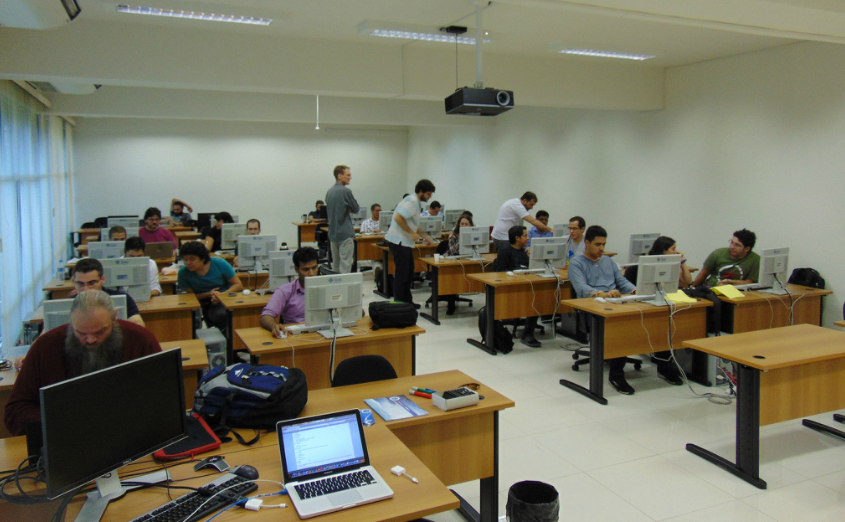ICTP-SAIFR organizes event on Scientific Computing
Workshop and course discussed the development of softwares for scientific research in different areas
The ICTP-SAIFR held, between the 13th and 30th of April, an external event of ICTP-Trieste dedicated to advanced techniques in scientific computing. During this period, there was a two-week workshop aimed at researchers of different areas and a one-week course dedicated to Particle Physics. The event was organized with the Scientific Computing Center (NCC) of Unesp and included the presence of international speakers, such as Ivan Girotto from the ICTP-Trieste.
“One of our main objectives was to improve the understanding of software development for science,” says Girotto. “We wanted to spread the knowledge we have, especially with young researchers, as scientific computing is becoming increasingly important and is currently applied in different areas of science.”
Workshop
The workshop was aimed at scientists of different fields who use scientific computing techniques in their research. Among the main examples of applications are the development of climate models and models in Biophysics and Particle Physics. The event had both theoretical lectures and practical classes, in which participants developed projects to apply the knowledge acquired throughout the course.
“Over the first two weeks, we tried to teach the participants the fundamental concepts of scientific programming using, among other tools, the Python programming language,” explains Gabriel von Winckler, one of the organizers of the event from the NCC. “Our goal was to enable them to build scientific applications using this language.”
Furthermore, the Workshop also stimulated cooperation between universities and researchers from different countries. The event has had two editions held in ICTP-Trieste and proved fruitful to encourage new partnerships and ideas.
“The participants continued to collaborate and work together on projects after the end of the events,” says Girotto. “The first edition of the workshop led to the creation of an independent event related to electronic structures, for example.”
Particle Physics
The course that followed the two-week workshop was dedicated to the application of scientific computing in Particle Physics. In this area, high performance computing is essential to simulate complex particle collisions made in large accelerators, and also to process all the information generated by the experiments. Part of the processing of the LHC data, the largest particle accelerator in the world which was recently reactivated, is done at SPRACE, a computing structure located in NCC.

